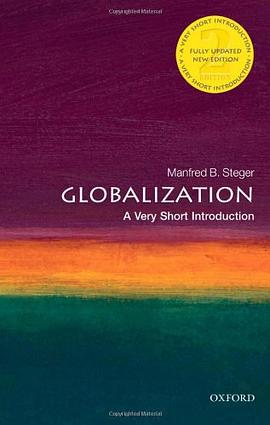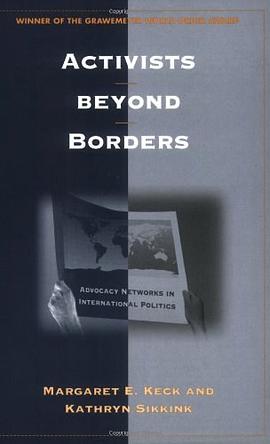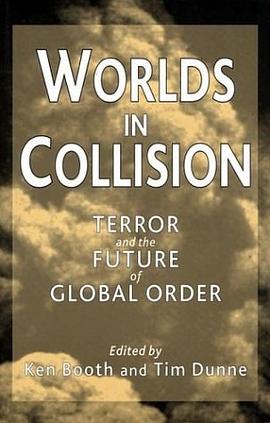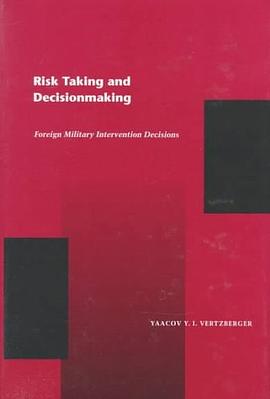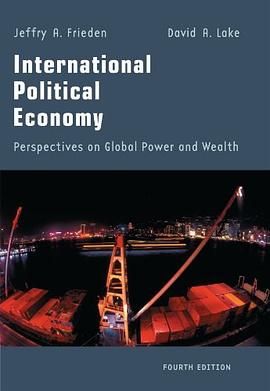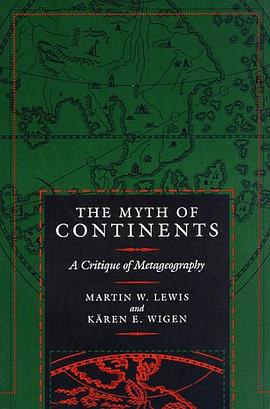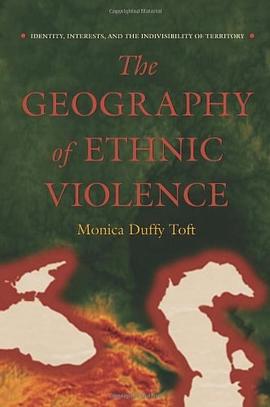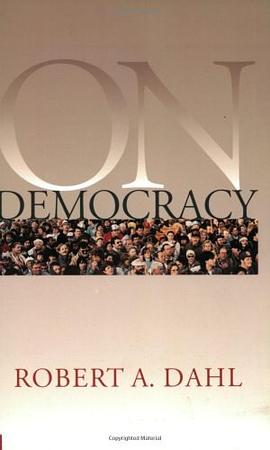
具体描述
The last half of the twentieth century has been an era of democratic triumph. The main antidemocratic regimes—communist, fascist, Nazi—have disappeared, and new democracies are emerging vigorously or tentatively throughout the world. In this accessible and authoritative book, one of the most prominent political theorists of our time provides a primer on democracy that clarifies what it is, why it is valuable, how it works, and what challenges it confronts in the future.
Robert Dahl begins with an overview of the early history of democracy. He goes on to discuss differences among democracies, criteria for a democratic process, basic institutions necessary for advancing the goals of democracy, and the social and economic conditions that favor the development and maintenance of these institutions. Along the way, he illustrates his points by describing different democratic countries, explaining, for example, why India, which seems to lack most of the conditions for a stable democracy, is nevertheless able to sustain one. Dahl answers such puzzling questions as why market-capitalism can both favor and harm democracy. And he concludes by examining the major problems that democratic countries will face in the twenty-first century, problems that will arise from complexities in the economic order, from internationalization, from cultural diversity, and from the difficulty of achieving an adequate level of citizen competence.
作者简介
Robert A. Dahl, Sterling Professor Emeritus of Political Science and Sr. Research Scientist Sociology, is a member of the National Academy of Sciences, the American Philosophical Society and the American Academy of Arts and Sciences, a corresponding member of the British Academy, and a past President of the American Political Science Association. His publications include Congress and Foreign Policy; Politics, Economics and Welfare (with C. E. Lindblom); A Preface to Democratic Theory; Who Governs? Democracy and Power in an American City; After the Revolution?; Polyarchy; Size and Democracy (with E. R. Tufte); Dilemmas of Pluralist Democracy; A Preface to Economic Democracy; Controlling Nuclear Weapons: Democracy Versus Guardianship; Democracy and Its Critics; Toward Democracy: A Journey; On Democracy; How Democratic is the American Constitution?, Politica e virtu' , La teoria democratica de nuovo secolo, After the Goldrush: Growing up in Skagway and On Political Equality.
目录信息
读后感
【书摘】自由的表达不仅意味着我们有权利说出我们心中的观点,它还意味着我们有权利接受别人的观点。 要对政府各种可能的行为和政策有充分的知情,也必须有表达的自由。要培养基本的公民能力,公民需要有机会表达他们自己的观点、相互学习、参与讨论好协商,通过语言文学向各...
评分国庆期间,读了达尔的《论民主》一书。被发现的时候,它藏在西溪图书馆的一个不显眼的角落里,32开本、不到1厘米的厚度,这本1999年出版的书距今已有近二十个年头。它的封皮已经破旧,书中做满了标记,以及商务印书馆的经典字体,像是在等待一位新读者的到来。 民主是一个熟悉...
评分《论民主》这本书是美国学者罗伯特·达尔所著,和其他讨论与论述民主的鸿篇巨著相比,这本书可以说是相当“接地气”了。最重要的原因在于,这本书的内容浅显易懂、文字直截了当,没有过于专业的术语和深奥的表达, 在轻松地阅读过程中,让我们对何为民主、民主的标准是什么、怎...
评分 评分《论民主》这本书是美国学者罗伯特·达尔所著,和其他讨论与论述民主的鸿篇巨著相比,这本书可以说是相当“接地气”了。最重要的原因在于,这本书的内容浅显易懂、文字直截了当,没有过于专业的术语和深奥的表达, 在轻松地阅读过程中,让我们对何为民主、民主的标准是什么、怎...
用户评价
这本书的封面设计就足够吸引我了,简约的风格,一种力量感油然而生。当我翻开第一页,那种期待感被瞬间点燃。我一直对民主这个概念有着浓厚的兴趣,它是如此普遍,又是如此复杂,每个人都有自己的理解,但似乎又很难触碰到其核心。我希望能在这本书中找到一些更深层次的洞察,不仅仅是停留在表面的政治制度讨论,而是能够深入到民主的精神内核,它如何塑造我们的社会,又如何在现实中被实践和挑战。我特别关注作者会如何处理民主的普适性和其在不同文化背景下的具体表现之间的张力。是把它视为一种放之四海而皆准的理想,还是一个需要不断根据当地情况进行调整和优化的动态过程?我渴望看到作者能够提供一些具有启发性的视角,让我能够重新审视自己对民主的认知,甚至是质疑一些我过去习以为常的观点。书名本身就有一种宏大叙事的意味,仿佛要带领我进行一场关于民主的深度探索。我希望这本书不仅仅是一本学术著作,更是一本能够引发思考、激发对话的书籍。我希望它能提供给我分析当下政治局势的工具,让我能够更清晰地理解那些发生在世界各地的民主实践,以及它们所面临的挑战和机遇。我期待它能带来一种智慧的启迪,让我能够以一种更成熟、更深刻的方式来理解“民主”这个词汇的真正含义。
评分从第一章开始,我就被作者的笔触所吸引。他并没有直接抛出高深的理论,而是从一些看似日常的现象切入,循序渐进地引导读者进入对民主的思考。这种叙事方式非常舒服,让我感觉不像是在读一本枯燥的学术论文,更像是在与一位博学的智者进行一场深入的交流。我一直在思考,民主到底意味着什么?它仅仅是少数服从多数,还是包含了更多关于个体权利、社会公正、以及权力制约的要素?这本书似乎在试图回答这些问题,但又不是那种非黑即白的答案,而是展现了民主的复杂性和多面性。我特别欣赏作者在处理不同国家和地区民主实践差异时的细致入微。他没有简单地将西方模式奉为圭臬,而是承认了不同文化和社会背景会催生出截然不同的民主形态。这种尊重多样性的态度让我感到非常受用,也让我对民主的理解更加立体和包容。我希望这本书能够帮助我构建一个更完整的民主理论框架,让我能够更好地分析和评价不同国家和地区的政治制度。我也期待作者能够分享一些关于民主如何应对当前全球性挑战的见解,比如气候变化、技术发展、以及全球化带来的不平等问题。这些都是当前社会最紧迫的问题,而民主在其中扮演着怎样的角色,如何才能更好地发挥其作用,是我非常感兴趣的。
评分每一次翻开这本书,我都能从中获得新的启发。作者不仅仅是陈述事实,更是在引导我进行一种“智识的冒险”。我一直在思考,民主的“理想”与“现实”之间,究竟有多大的距离?这本书似乎在试图弥合这种距离,通过对民主实践中出现的各种问题进行深入的分析,并提出一些具有建设性的解决方案。我特别关注作者对“协商民主”的讨论,这是一种我非常推崇的民主形式,因为它强调了沟通、妥协、以及理性辩论的重要性。我希望这本书能够为我提供一些关于如何更好地实践协商民主的思路和方法。我也希望这本书能够帮助我理解,在当今这个信息爆炸、观点多元的时代,我们如何才能避免信息茧房和观点极化,从而更好地进行理性的对话和决策。我期待这本书能够让我对民主的未来发展产生更积极的预期,而不是仅仅停留在对现有问题的担忧。
评分每一次阅读这本书,我都能感受到作者对民主的深厚情感和理性思考。我一直在追寻“民主的灵魂”究竟是什么?是自由?是平等?是正义?还是某种超越这些概念的更高层次的追求?这本书似乎在试图回答这个问题,通过对民主历史和哲学的深入探讨,展现了民主所蕴含的丰富意义。我特别欣赏作者对“社会契约”的讨论,这是民主制度的基石。他通过对社会契约的演变和不同学派的观点进行分析,展现了社会契约在构建和维护民主方面的作用。我希望这本书能让我更深刻地理解,在民主制度下,我们如何才能更好地履行社会契约,从而构建一个更公平、更和谐的社会。我也期待这本书能够为我提供一些关于如何更好地参与到公共事务中,成为一个积极的、负责任的公民的建议。
评分这本书的文字风格非常吸引人,既有学者的严谨,又不失人文的温度。我一直在探索“民主的边界”在哪里?它是否有一个绝对的标准?还是一个不断被重新定义的概念?这本书似乎在引导我思考这个问题,通过对不同国家和地区民主实践的比较分析,展现了民主的包容性和多样性。我特别喜欢作者对“公民教育”的重视,因为我相信,一个健康的民主社会,离不开公民对民主原则和制度的理解和认同。我希望这本书能够为我提供一些关于如何更好地进行公民教育的思路和方法,让我们能够培养出更具批判性思维和民主素养的公民。我也期待这本书能够让我对民主的未来发展产生更积极的预期,而不是仅仅停留在对现有问题的担忧。
评分这本书的结构安排非常巧妙,每一章都像是在为下一章铺垫,形成了一个逻辑严密的整体。我一直在追寻一个核心问题:是什么让一个国家真正成为“民主”的国家?是健全的法治?是自由的媒体?是活跃的公民社会?还是以上所有因素的有机结合?作者在书中似乎也在不断地探索这个问题的答案,并提供了许多令人信服的论证。我特别喜欢作者对历史事件的解读,他能够从中挖掘出与当下民主议题相关的深刻含义,让我能够从更广阔的历史视野来理解民主的发展演变。有时候,我们会觉得民主是理所当然的,但这本书让我意识到,民主的来之不易,以及它所面临的持续威胁。我希望这本书能让我更加珍惜我们所拥有的,并激励我去思考如何才能更好地维护和发展民主。我对书中关于“公民责任”的探讨尤其感到兴奋,因为我始终认为,民主不仅仅是权利,更是责任。一个健康的民主社会,离不开每一个公民的积极参与和审慎判断。我希望作者能够为我们提供一些关于如何履行这些责任的具体建议,让我们能够更好地成为负责任的公民。
评分这本书给我带来的最大感受是“深刻”。作者的思考维度非常广阔,他能够将宏大的政治哲学与微观的社会现象联系起来,形成一种独特的洞察力。我一直对民主的“演进”过程充满好奇,它不是一个静止的概念,而是在不断地发展和变化。这本书似乎也在追寻民主演进的脉络,从历史的源头到当代的实践,展现了民主形式的多样性和适应性。我特别欣赏作者对“权力制衡”的强调,这是民主制度的核心所在。他通过对不同权力机构之间的相互作用进行分析,展现了权力制衡的重要性以及它在维护民主方面的作用。我希望这本书能让我更深刻地理解,在民主制度下,如何才能有效地防止权力的滥用和扩张,从而保障公民的自由和权利。我也期待这本书能够为我提供一些关于如何更好地参与到公共事务中,成为一个积极的、负责任的公民的建议。
评分在阅读这本书的过程中,我时常会停下来,陷入沉思。作者提出的许多观点都非常有冲击力,它们挑战了我固有的认知,也为我打开了新的思维空间。我一直对民主的“韧性”非常好奇,它如何在历史的长河中经历风雨,又如何在逆境中重新崛起?这本书似乎在试图回答这个问题,通过对不同历史时期和不同民主模式的深入剖析,展现了民主生命力的顽强。我特别欣赏作者在处理一些敏感和争议性话题时的平衡和客观。他并没有回避民主进程中的一些阴暗面,比如权力滥用、腐败、以及民粹主义的兴起,而是以一种冷静和理性的态度来审视它们,并试图找到解决之道。这种对复杂现实的承认,让我觉得这本书非常真实和有价值。我希望这本书能帮助我更深入地理解民主的“免疫系统”,它是如何抵御内部和外部的威胁,又是如何在不断变化的环境中自我修复和演进的。我也期待书中能够提供一些关于如何培养和维护民主价值观的教育理念,因为我相信,民主的未来掌握在下一代手中,而他们的思想和价值观的塑造至关重要。
评分这本书的叙事方式非常引人入胜,它不仅仅是知识的传递,更是一种思维的引导。我一直在思考,民主的“挑战”有哪些?它如何应对全球化、技术变革、以及社会不平等的冲击?这本书似乎在探索这些挑战,并通过对不同案例的分析,展现了民主的适应性和韧性。我特别喜欢作者对“民主的创新”的讨论,因为我相信,民主需要不断地自我革新和发展,才能适应时代的变化。我希望这本书能够为我提供一些关于如何更好地推动民主创新,让民主更具活力和生命力的思路和方法。我也期待这本书能够让我对民主的未来发展产生更积极的预期,而不是仅仅停留在对现有问题的担忧。
评分这本书给我带来的最大启示是“深刻的反思”。作者的思考维度非常广阔,他能够将宏大的政治哲学与微观的社会现象联系起来,形成一种独特的洞察力。我一直在探索“民主的未来”会走向何方?它是否会面临更大的挑战?又将如何应对?这本书似乎在探索这些问题,并通过对不同趋势的分析,展现了民主的演进和可能性。我特别欣赏作者对“公民参与”的强调,因为我相信,民主的活力来自于每一个公民的积极参与。我希望这本书能够为我提供一些关于如何更好地鼓励公民参与,让民主更具包容性和代表性的思路和方法。我也期待这本书能够让我对民主的未来发展产生更积极的预期,而不是仅仅停留在对现有问题的担忧。
评分老王卖瓜自卖自夸的一本力作。全篇论证流畅:“民主好啊“ ,就这个。说实话我觉得真不如Michael Hardt写得好。
评分老王卖瓜自卖自夸的一本力作。全篇论证流畅:“民主好啊“ ,就这个。说实话我觉得真不如Michael Hardt写得好。
评分民主Q&A,看似基本其实也很可回味。Dahl的写作风格深得我心,老话说的好:简约而不简单。。
评分Dahl算不算文字功力最高的政治学家,行云流水感动哭了!!!
评分很烂
相关图书
本站所有内容均为互联网搜索引擎提供的公开搜索信息,本站不存储任何数据与内容,任何内容与数据均与本站无关,如有需要请联系相关搜索引擎包括但不限于百度,google,bing,sogou 等
© 2026 qciss.net All Rights Reserved. 小哈图书下载中心 版权所有



